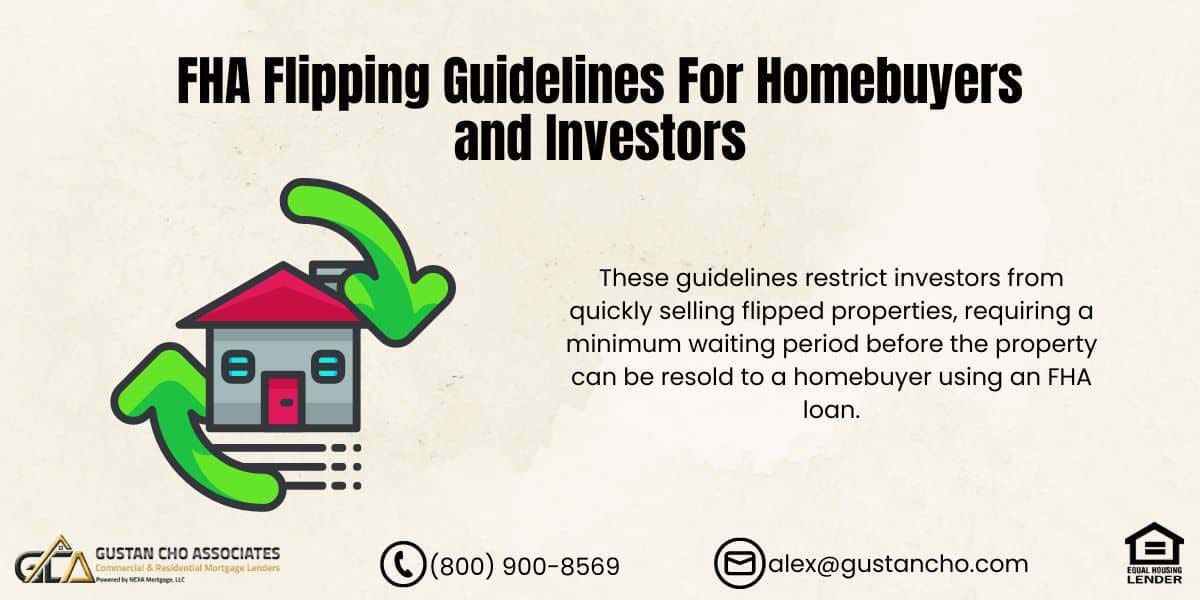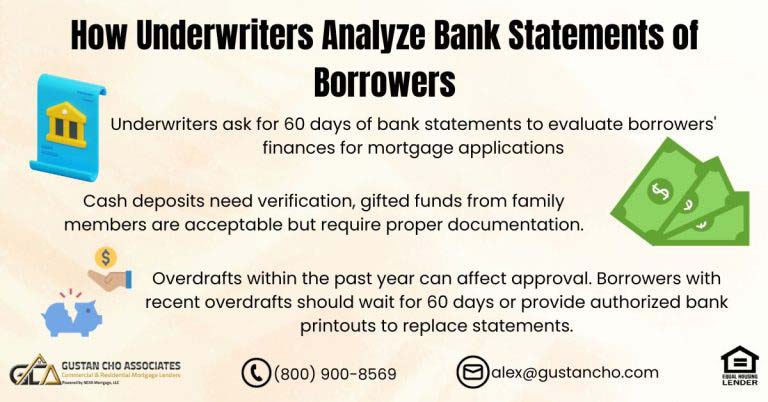This guide covers FHA flipping guidelines for homebuyers and real estate investors. The U.S. housing market is booming like never before despite skyrocketing inflation, high home prices, and the highest mortgage rates in 40 years. There is a major demand for homes that far exceed supply.
Real estate investors are making a fortune buying property flips. Many agencies such as HUD, VA, USDA, Fannie Mae, and Freddie Mac are concerned about the skyrocketing home prices just from the demand side.
Home prices have been increasing since 2013 with no sign of a housing correction. HUD and the Federal Housing Finance Agency have increased FHA and Conventional loan limits for the past five years in a row to skyrocketing home prices. In this article, we will discuss and cover FHA flipping guidelines on FHA loans.
The Booming Housing Market Has Many Investors Buying and Selling Property Flips
HUD, the parent of FHA, has come up with new FHA flipping guidelines for home buyers and real estate investors. New FHA flipping guidelines were created after the 2008 Real Estate And Financial Meltdown. Days, where properties get flipped multiple times by investors prior to selling it to the end homeowner, have long been gone. The government put every possible measure into place to avoid another real estate crash like the one we had in 2008. Homebuyers with FHA loans can buy property flips from real estate investors. However, they need to follow and abide by FHA flipping guidelines.
How FHA Flipping Guidelines Work
The real estate market has recovered. Many home builders on the brink of bankruptcy are now enjoying stellar record profits. Home prices have skyrocketed throughout the country. FHFA has increased conforming loan limits for the past five years in a row. Conforming Loan Limits for 2024 is capped at $776,550. HUD has increased FHA Loan Limits for the past eight years in a row.
Rising Home Prices Make Property Flips Lucrative For Real Estate Investors
HUD has been increasing FHA loan limits for the past five years due to skyrocketing home prices due to housing shortages. HUD has increased FHA Loan Limits for 2024 is $498,257. The reason for FHFA and HUD increasing loan limits is due to rising home prices. Many pre-approved home buyers are having a difficult time finding homes within their price range. Property flippers can offer great deals on homes they renovated and are flipping. There are two types of investors. Long-term real estate investors. The second type is short-term property flippers.
Thinking of Buying a Flipped Home? Understand FHA Flipping Guidelines First!
Contact us today to learn about FHA flipping guidelines and how they affect your home buying process.
How FHA Flipping Guidelines Affect Real Estate Investors
Real estate property flippers are investors who purchase homes at a discount. They buy homes in need of repairs, do renovations to them, and then sell it for a profit. The key to making the most profit for property flippers is to sell it as fast as possible. Many flippers use hard money loans.
The longer borrowers have the hard money loan out, it means high interest and less profit. However, there are mortgage guidelines when it comes to home buyers buying property flips.
FHA flipping guidelines restrict real estate investors from selling flips fast. Lenders consider property flips as a property that has been purchased and flipped at a premium in a short period of time. Some property flippers can make over 100% return on their investment. Nothing is wrong with investors making double, triple, or more their investments. But HUD does have strict FHA Flipping Guidelines when it comes to FHA borrowers buying flips.
90 Days FHA Flipping Guidelines
In this section we will cover the 90 day FHA flipping guidelines. First, the seller must be the owner of record and the sale may not involve an assignment of contract. Basically the person or entity on the deed must be the seller. Next, lenders must obtain and submit documentation proving the owner of record to FHA / HUD. Then, appraisers are required to provide prior sales of the subject over the previous 3 years.
The most restrictive rule is the 90 day FHA flipping rule. HUD will not allow a buyer to purchase a home owned by the seller for less than 90 days. The purchase contract date must be 91 days after the recorded deed date.
Otherwise if less than 90 days, HUD will not insure the FHA Loan. Therefore, lenders cannot close an FHA loan where the sellers has owned the property for 90 days or less. The way HUD calculates days of ownership by sellers on a property flip is the recorded date of the subject property in relation to the real estate contract date. FHA requires a minimum of a 90 day waiting period. There are FHA flipping guidelines on homes that are sold between 91 to 180 days.
FHA Flipping Guidelines on Homes That Were Owned For 91 To 180 Days
FHA Flipping Guidelines applies to the following conditions: The sale of the subject flip is between 91 and 180 days. If the home buyers purchase are buying homes where sellers are making 100% profit. Borrowers with a higher-priced loan and the price are more than 20% over the seller’s acquisition price. If the above conditions apply, a second home appraisal needs to be ordered. Under FHA Flipping Guidelines, the home buyer cannot pay for the second home appraisal.
Ready to Buy a Flipped Home? Let’s Help You Navigate FHA Flipping Guidelines!
Reach out now to learn how these rules apply and ensure a smooth home buying experience.
Case Scenario of FHA Flipping Guidelines
Let’s take a case scenario: The homebuyer is buying a home from a real estate investor who is flipping the property for $200,000. The investor bought it for $100,000. The investor made over $100,000 profit which is 100%. The second appraisal needs to be ordered if the following apply: The contract date on executed real estate purchase contract is between 91 and 365 days. Or if the buyer is buying the flip that is greater than 5% than the lowest recorded sale price of the property within the past 12 months.
Exceptions To FHA Flipping Guidelines
There are certain exemptions to FHA flipping guidelines. The following conditions are exempt from FHA flipping guidelines: A home that is purchased by employers or relocation companies. Foreclosure homes by HUD. Government agencies owned homes pursuant to programs operated by these agencies.
Homes purchased by non-for-profit agencies of HUD-owned single-family properties at a discount with resale restrictions. Homes acquired by the home seller through inheritance.
Financial and government-sponsored institutions and agencies. Local and state government organizations. Homes in Federal Declared Disaster Area. If an investor buys the above properties and decides to sell right away, then FHA flipping guidelines applies.
Buying Flips With Other Loan Programs
FHA is the only loan program with property flip waiting period guidelines. Other loan programs such as VA, USDA, Conventional Loans have no property flip guidelines. HUD is the only agency that requires a property flip waiting period and second appraisal requirements on the flip.
For more information on property flips, feel free to contact us at Gustan Cho Associates at 800-900-8569 or text us for a faster response. Or email us at gcho@gustancho.com. We are experts in helping homebuyers buying house flips and getting them approved and closed on their FHA loan. The team at Gustan Cho Associates is available 7 days a week, evenings, weekends, and holidays.
FAQs: FHA Flipping Guidelines For Homebuyers and Investors
- 1. What are FHA flipping guidelines? FHA flipping guidelines are rules set by HUD to prevent quick property resales at inflated prices, aiming to protect homebuyers and stabilize the housing market.
- 2. Why were the FHA flipping guidelines created? These guidelines were established after the 2008 Real Estate and Financial Meltdown to prevent speculative property flips from contributing to the housing market crash.
- 3. How do the FHA flipping guidelines affect real estate investors? These guidelines restrict investors from quickly selling flipped properties, requiring a minimum waiting period before the property can be resold to a homebuyer using an FHA loan.
- 4. What is the 90-day FHA flipping rule? The 90-day rule prohibits FHA loans for homes resold within 90 days of the seller’s acquisition. The purchase contract must be dated 91 days after the deed was recorded.
- 5. What are the guidelines for properties sold between 91 to 180 days? If a property is sold between 91 and 180 days and the resale price is 100% or more of the acquisition cost, or if the price is more than 20% over the seller’s purchase price, a second appraisal is required.
- 6. Are there any exceptions to the FHA flipping guidelines? Yes, exceptions include homes purchased by employers or relocation companies, HUD foreclosure homes, government-owned homes, properties acquired through inheritance, and homes in federally declared Disaster Areas.
- 7. Do other loan programs have similar flipping guidelines? Only FHA has specific property flip waiting period guidelines. Other loan programs, such as VA, USDA, and Conventional Loans, do not have these restrictions.
- 8. Why have FHA and Conventional loan limits been increased recently? The limits have been raised due to skyrocketing home prices and a high demand for homes that exceeds the supply, making it difficult for pre-approved buyers to find homes within their price range.
- 9. How can FHA flipping guidelines impact my ability to buy a flipped property? These guidelines may delay your purchase if the property has been owned by the seller for less than 91 days or requires a second appraisal due to a significant price increase.
- 10. Where can I get more information or assistance with FHA loans and property flips? You can contact Gustan Cho Associates at 800-900-8569, text for a faster response, or email at gcho@gustancho.com. Their team is available 7 days a week, including evenings, weekends, and holidays.
Buying a Flipped Home? Make Sure You’re Familiar with FHA’s Flipping Guidelines!
Reach out today to understand how these rules may impact your loan approval.









